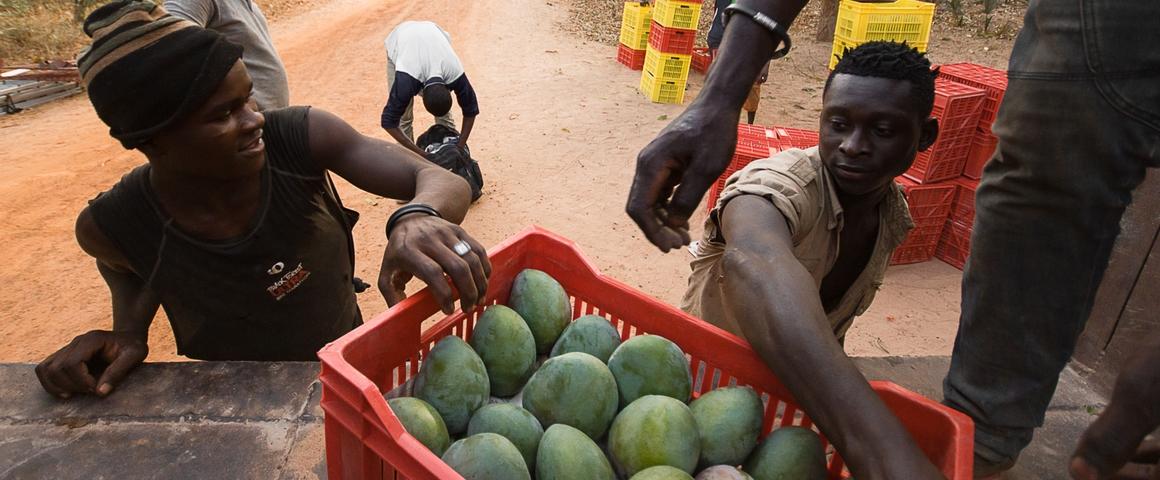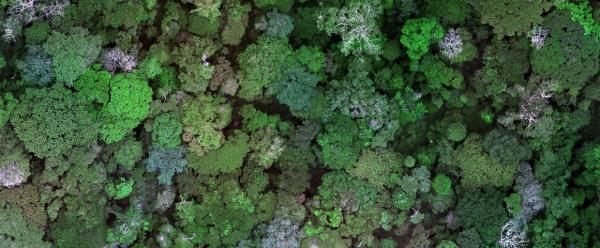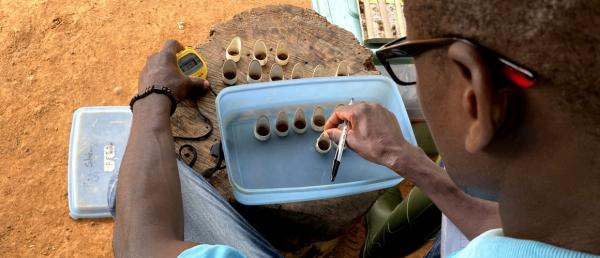Results & impact 23 April 2024
- Home
- CIRAD news
- News
- Assessing innovations for sustainable food systems
It's all very well working to build more sustainable food systems, but how do we know we're on the right track?

Transporting mangoes destined for export (Senegal) © R. Belmin, CIRAD
"There is a widely held belief these days that many solutions for building more sustainable food systems may lie on a local or regional level. Territories are therefore teeming with experiments, but we do not know what they have done to actually transform those food systems. How can we assess the impact of such initiatives, and how can we support scaling up and the transition to greater sustainability?"
Elodie Valette is a geographer with CIRAD. As part of the Urbal* project, she has been working on urban innovations intended to make food systems more sustainable. School canteens, cooperative supermarkets, participatory guarantee systems, etc... over four years, the project teams looked at 16 food innovations rolled out in a dozen towns and cities across the globe. That work gave rise to a quality-based participatory approach aimed at characterizing the impact of such innovations on food system sustainability. The guide produced is intended to be easily accessible and the method easy to apply. In particular, it should help innovation leaders, donors and public authorities make decisions. By multiplying and comparing viewpoints, the method's participatory, multi-stakeholder dimension allows it to guarantee the social relevance of its results and ensures their adoption.
Five dimensions of sustainability
A sustainable food system, from farm to table, regenerates the environment, provides equitable livelihoods, preserves biodiversity, centres on territories practising agroecology and provides everyone with healthy, culturally appropriate food. The Urbal approach centres on this systemic dimension, and suggests an assessment covering five dimensions of sustainability: health, governance, environment, social-cultural, and economic. Urbal takes account of all of these facets, with a view to pinpointing the range of possible impact pathways.
"Some innovations, for example, have positive impacts on the environment, but do not guarantee access to healthy, affordable food for all", Élodie Valette says. "To quote another example, buying from local producers, which boost the local economy and improves producers' socio-professional integration, can have adverse environmental effects if it means sub-optimal logistics. The Urbal guide offers the possibility of glimpsing every cause and effect, and the synergies and contradictions between them, to enable players to make more enlightened decisions, depending on the political objectives and constraints linked to a given territory."
A four-stage guide
The Urbal guide is easily available on line in English and French – and shortly in Spanish – and provides a step-by-step explanation of how to assess the impact of food innovations on sustainability.
- Understanding the objectives, actions and scope of an innovation
- Looking at the short-, medium- and long-term changes generated by the innovation by means of multi-stakeholder workshops
- Summarizing and sharing the results
- Choosing and building appropriate indicators.
The four stages, which are clearly explained, make it easier for project leaders to take the approach on board. Moreover, free training sessions were offered once the project was completed, to facilitate its use.
For Élodie Valette, "Urbal's strength lies in the fact that it offers a simple way of observing complex changes. The resulting understanding serves to highlight the way in which innovations help to transform food systems, and to facilitate the sharing, reproduction and dissemination of solutions to ensure greater sustainability".
Presentation of the Urbal guide
* Urbal, for "Urban-Driven Innovations for Sustainable Food Systems", was conducted in collaboration with Està, an Italian NGO, the UNESCO Chair in World Food Systems, Wilfrid Laurier University in Canada and various scientific partners for each case study. It was funded by Agropolis Fondation, the Cariplo Foundation and the Daniel and Nina Carasso Foundation under the Thought for Food call for proposals.

























_C.Chabrier.JPG)
